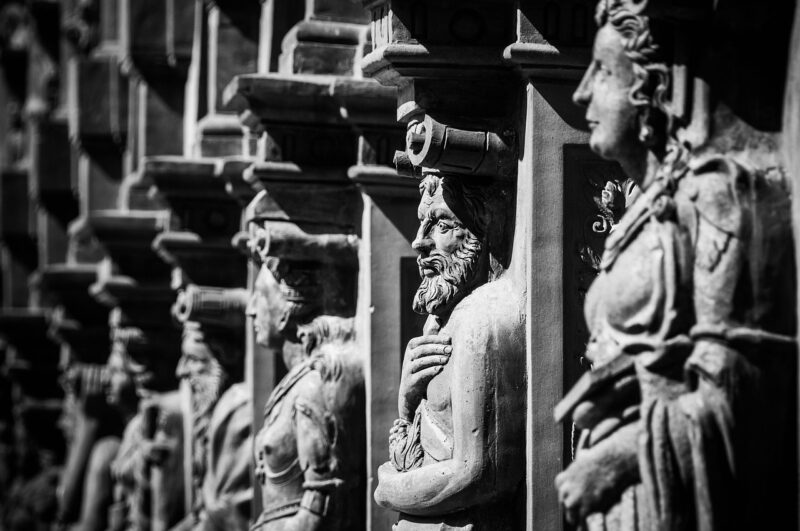How the Renaissance and Enlightenment Shaped Modern Political Philosophy
November 16, 2024

The Renaissance and Enlightenment periods were pivotal movements that not only transformed art and science but also fundamentally reshaped political philosophy. Understanding these historical epochs enables us to see how the ideas and values born during these times continue to influence modern political thought and practice.
1. The Renaissance: Rediscovery and Rebirth
The Renaissance, spanning from the 14th to the 17th century, marked a revival of classical learning and wisdom, which had profound implications for political thought. Originating in Italy, it emphasized humanism, a philosophy that centered on human potential and achievements. This movement encouraged thinkers to look beyond the divine and the dogmatic, advocating a more rational, human-centered approach to understanding the world and governance.
Some noteworthy aspects of Renaissance thought included:
- Humanism: Humanists like Petrarch and Erasmus championed the study of classical texts, promoting literacy and education. Their work laid the foundation for questioning traditional authority, including political systems.
- Individualism: The Renaissance heralded a newfound emphasis on individual rights and personal agency. Political theorists began to explore ideas of citizenship, rights, and responsibilities of the individual in the state.
- Political Realism: Thinkers such as Machiavelli introduced ideas around political power, pragmatism, and the nature of governance. In his seminal work, “The Prince,” Machiavelli argued that the ends could justify the means, presenting a clear departure from the moral frameworks that dominated previous eras.
These emerging ideas encouraged politicians and thinkers to reevaluate the nature of political authority and the rights of citizens, sowing the seeds for modern political philosophy.
2. The Enlightenment: Reason, Liberty, and Social Contract
Following the Renaissance, the Enlightenment of the 17th and 18th centuries further propelled political philosophy into new realms. This intellectual movement emphasized reason, logic, and empirical evidence, promoting ideals such as democracy, civil rights, and governance by consent.
Key thinkers and concepts emerged during this era:
- John Locke: Often regarded as the father of liberalism, Locke’s theories of the social contract and natural rights played a crucial role in framing ideas about government’s legitimacy derived from the consent of the governed. His notion that individuals possess inalienable rights to life, liberty, and property inspired democratic foundation stones globally.
- Jean-Jacques Rousseau: Rousseau took the concept of the social contract further, arguing that legitimate political authority relies on the general will of the populace. His ideas emphasize collective rights and the duty of citizens to participate in governance.
- Montesquieu: In “The Spirit of the Laws,” Montesquieu championed the separation of powers as a means to prevent tyranny and safeguard liberty. His influence played a vital role in shaping modern democratic institutions, such as the legislative, executive, and judicial branches of government.
The Enlightenment’s challenge to traditional authority and advocacy for empirical reasoning fundamentally reshaped the political landscape, paving the way for revolutions and the establishment of constitutional democracies.
3. The Interplay of Renaissance and Enlightenment Ideas
While the Renaissance primarily focused on reviving classical knowledge, it was the Enlightenment that truly applied this knowledge to develop frameworks for governance and societal organization. The Renaissance inspired a questioning attitude, paving the way for the Enlightenment’s focus on rational political discourse.
Several interconnections can be drawn:
- Human Rights and Dignity: Renaissance humanism’s focus on individual potential transitioned into Enlightenment ideas about human rights and dignity. This shift contributed to the development of universal human rights ideas cherished in contemporary democratic societies.
- Critical Thinking and Skepticism: The Renaissance’s challenge to dogma fostered a culture of skepticism that thrived during the Enlightenment. This spirit of inquiry encouraged philosophers to critique existing political systems and propose alternatives grounded in reason and justice.
- Empowerment of the Individual: Both movements contributed to the growing recognition of the individual’s role in society. While Renaissance thinkers laid the groundwork for personal agency, Enlightenment philosophers envisioned individuals as active participants in shaping their government.
Though distinct, the ideas of these two eras intermingled to create a robust framework for modern political philosophy.
4. Modern Political Philosophy: Key Takeaways
The influence of the Renaissance and Enlightenment can be observed in several core principles of modern political philosophy:
- Democracy: Modern democracy, marked by individual rights, representation, and accountability, owes much to Enlightenment thinkers like Locke, Rousseau, and Montesquieu. Their ideas form the bedrock of contemporary political systems that prioritize the voice of the people.
- Rule of Law: The concept that law applies equally to all citizens is a direct evolution from both Renaissance and Enlightenment principles, emphasizing reason over arbitrary rule. Today, the rule of law enshrines freedom and justice in political systems worldwide.
- Human Rights: The recognition of basic human rights stems from the humanist focus of the Renaissance and the philosophical developments of the Enlightenment. Today, these rights remain central to global debates about justice and equity.
These principles encapsulate the enduring legacy of the Renaissance and Enlightenment, emphasizing that the philosophies born during these eras continue to resonate in the fabric of modern political thought.
Conclusion
The Renaissance and Enlightenment were not mere historical footnotes; they were transformative periods that profoundly influenced modern political philosophy. The ideas of individualism, social contracts, and governance by consent continue to shape political discussions and democratic movements worldwide. Recognizing the importance of these eras allows us to appreciate the rich tapestry of human thought that contributes to our understanding of governance, rights, and the responsibilities of citizenship today.
Understanding this historical context not only enriches our knowledge of political ideologies but also equips us to better engage with contemporary issues facing our societies today.







